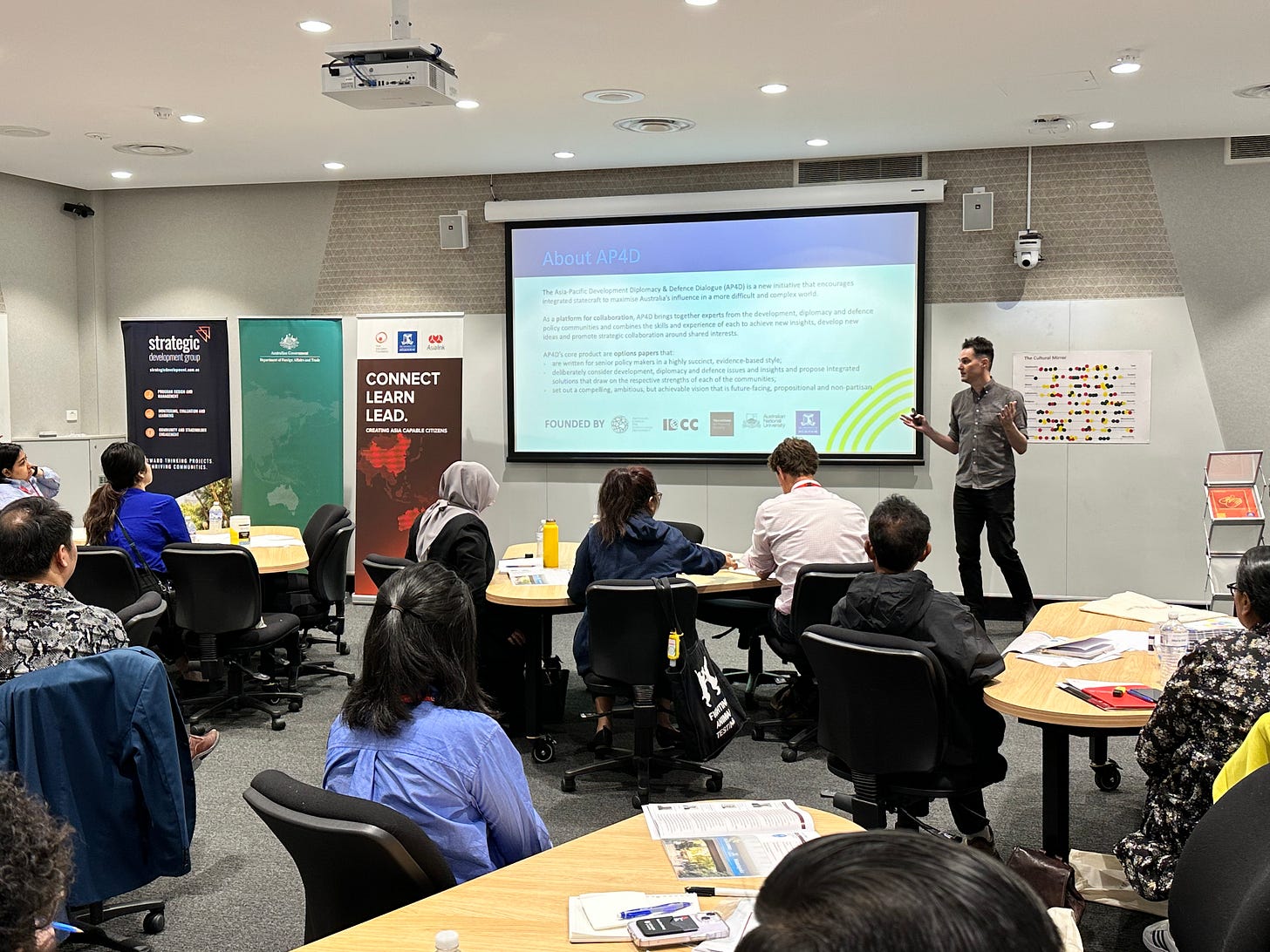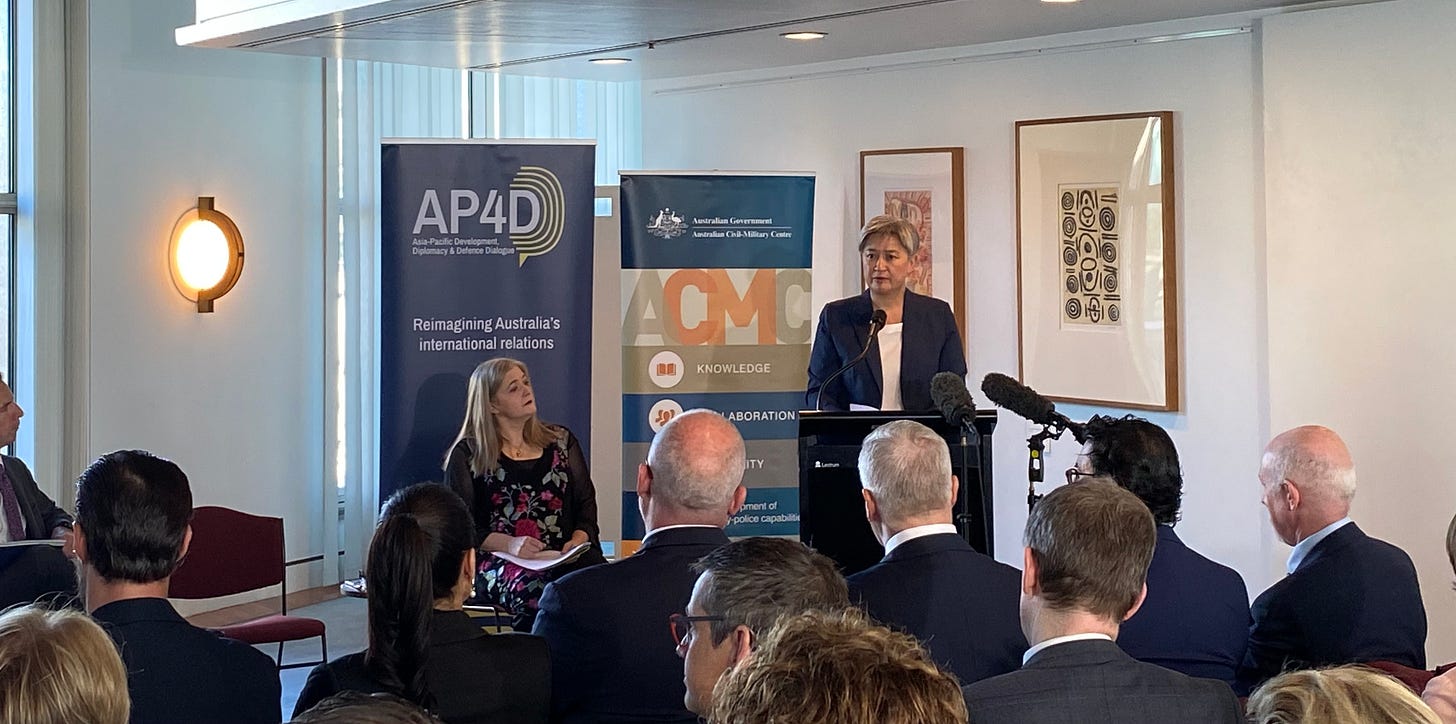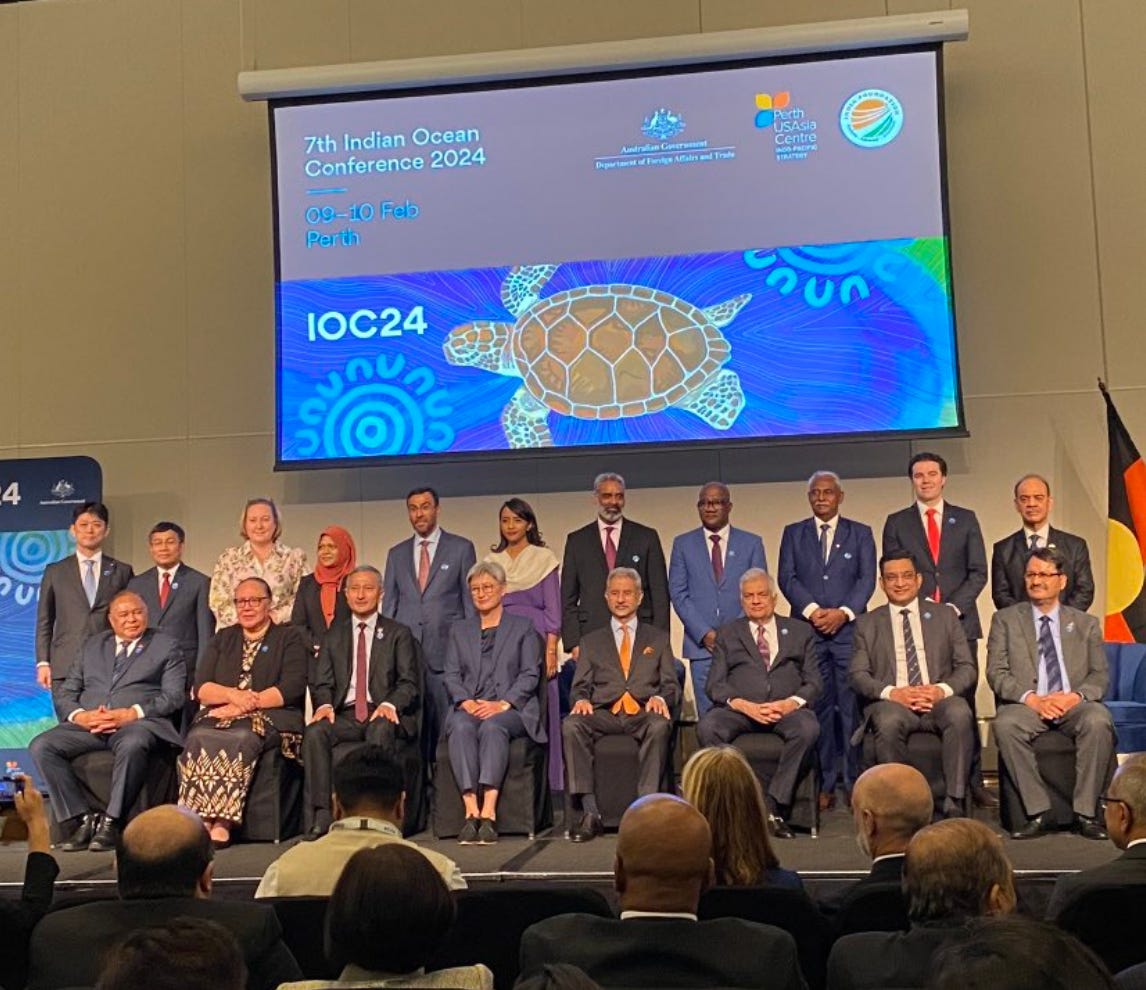Week 6: Maritime Awareness
A busy week delivering a talk in Melbourne, launching a paper in Canberra, and attending a conference in Perth.
It has been a busy week. On Tuesday I was invited to speak at the Southeast Asia Emerging Leaders Program hosted by the University of Melbourne. The program is coordinated by the Office of Southeast Asia inside Australia’s Department of Foreign Affairs (DFAT). The idea is for DFAT to identify some of the key young figures within Southeast Asia and then provide them with a week’s immersion in Australian foreign policy, as well as Australia itself (or at least Melbourne on this occasion).
I gave a brief presentation on the work we do at Asia-Pacific Development, Diplomacy and Defence Dialogue (AP4D) and gave some further comments on Australia’s interests in Southeast Asia and the efforts being made to preserve the peace in the region due to China’s refusal to submit itself to the United National Convention on the Law of the Sea (UNCLOS) – and its infringement of numerous countries’ sovereignty that is occurring due to this. I then fielded some questions, and had some one-on-one chats with participants afterwards as well.
It was a real honour to be invited to participate. As well as just very enjoyable being able to talk with some exceptional young people from the neighbourhood. As an aside – I prefer to call Australia’s immediate region its neighbourhood as it provides a greater sense of the common bonds and trust that Australia should develop within Southeast Asia. That’s when good neighbours become good friends.
On Wednesday I flew up to Canberra, as first thing on Thursday morning we launched our latest AP4D options paper - A Whole-Of-Nation Approach to International Policy – at Parliament House. We had the great honour of the foreign minister, Penny Wong, delivering remarks at the event, as did the shadow foreign minister, Simon Birmingham. The event was well attended by several other MPs and senior members of the public service. It was an enormous success.
On Thursday afternoon I flew to Perth for the Indian Ocean Conference hosted by the Department of Foreign Affairs and Trade and the India Foundation (with support from India’s Ministry of External Affairs). At AP4D we are currently working on a new options paper on Australia’s engagement within the Indian Ocean region, with a specific eye on South Asia. So the conference was an incredible opportunity to be able to source some of the key information we require for the paper (I had a couple of days of furious note-taking).
The conference was well attend by some heavy hitters – alongside Penny Wong following me across the country from Canberra after our launch on Thursday, India’s Minister for External Affairs, S.Jaishankar was the effective co-host. Sri Lanka’s president Ranil Wickremesinghe was also in attendance, alongside foreign ministers from Singapore, Mauritius, Timor Leste, Madagascar, Nepal, Bhutan and the Maldives. As well as other regional ministers whose portfolios intersect with Indian Ocean issues.
The conference was intriguing in that most speakers representing their governments were very openly talking about China without actually mentioning China by name. The rules and norms they stressed were essential to peace, stability and prosperity are primarily being threatened by China. Maybe not to the extent in the Indian Ocean as within the South China Sea, but by China’s sheer presence in the Indian Ocean there are concerns that similar rule-breaking will occur.
One key idea that was stressed by Penny Wong was that the things we take for granted - like freedom of navigation – don’t occur by themselves. The ability to sail a ship across oceans and not have to ask permission or pay-off some other authority is guaranteed by an agreed upon set of mutually beneficial norms – and protected by those with a commitment to these norms.
A concept like freedom of navigation springs from the same philosophical well as freedom of speech and freedom of assembly. It is both the right that people should be allowed to exchange freely with each other, and the trust that they are able to do so in a cooperative manner. Authoritarianism lacks this trust – instead believing that it needs to control and prevent human exchange.
The norms that the Indian Ocean rim countries were discussing and seeking to maintain at this conference primarily benefit those smaller countries that lack the muscle to physically protect their trade themselves (and it was notable which smaller countries – included landlocked ones – were most committed to upholding these rules and norms). We are so used to these norms that we may not consider a different world – one where an authority demands submission and pay-off, and the powerful simply eat the weak.
Due to my busy week there are unfortunately no articles to link to this week. I have only have a chance to save a pile of things to read, not dive into it. I’m hoping to get some time this forthcoming week to catch up on what I’ve missed.
Over on my much neglected music newsletter – Lunch Hour Pops – I have written a piece on Australia’s, and possibly the world’s, most criminally overlooked band, Bluebottle Kiss. The essay may be a bit niche, in that I argue there are structural factors within Australia that prevented them from gaining the attention and respect they deserved, but I also ponder the role luck plays in artistic recognition.





